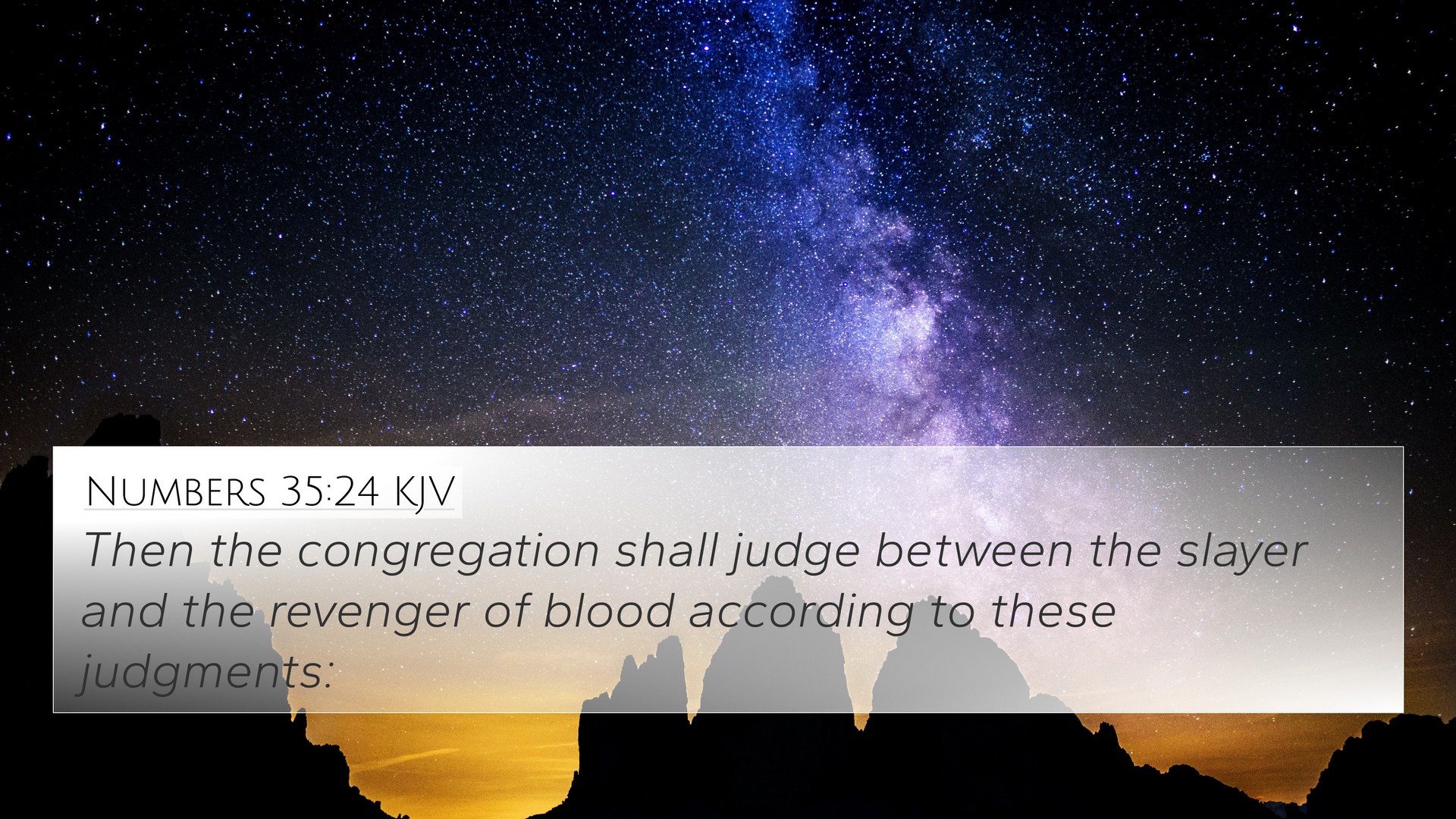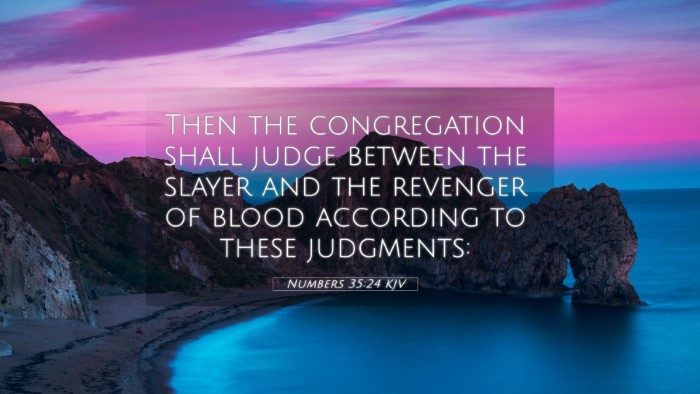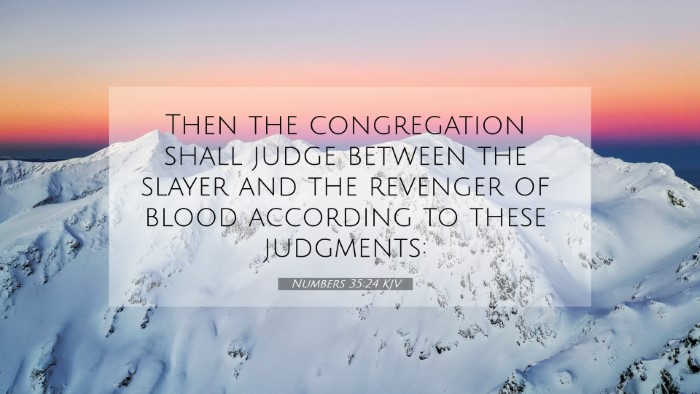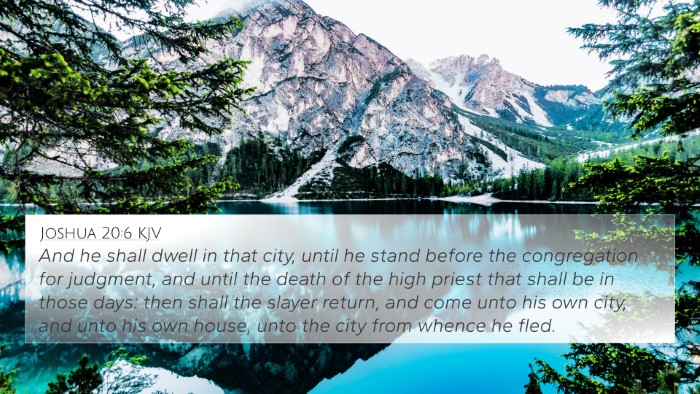Understanding Numbers 35:24
Verse Reference: Numbers 35:24
"Then the congregation shall judge between the slayer and the avenger of blood, according to these judgments."
Summary of the Verse
This verse illustrates the judicial system that was to be employed when a homicide occurred, particularly in the context of accidental killings. The congregation, or the community leaders, held the responsibility to discern the circumstances surrounding the death and determine the appropriate measures in accordance with the law given to them by God.
Insights from Public Domain Commentaries
Matthew Henry's Commentary
Henry emphasizes that this verse pertains to the importance of divine justice and the need for an impartial jury in cases of manslaughter. He points out that the process of judgment was grounded in the community's understanding of God's law and the necessity for fairness in evaluating the actions of the slayer versus the avenger of blood.
Albert Barnes' Notes
Barnes notes that God's law provided a method for resolving disputes arising from deaths, particularly stressing the significance of the congregation's role in administering justice. He also highlights the moral responsibility placed upon the congregation to protect the rights of individuals while ensuring the sanctity of life is respected.
Adam Clarke's Commentary
Clarke elaborates on the social dynamics at play, affirming that the avenger of blood, typically a close relative, had the right to seek retribution. However, the community's judgment was essential in distinguishing between intentional murder and accidental death, thus preventing unjust vengeance.
Cross-References for Further Study
- Exodus 21:12-14: Discusses the distinction between murder and manslaughter.
- Deuteronomy 19:4-6: Explains the cities of refuge for those who accidentally kill.
- Matthew 5:21-22: Jesus’ teaching on the seriousness of murder and anger.
- Romans 13:4: The government as a servant of God with authority to execute justice.
- Leviticus 24:17: Establishes the principle of life for life, eye for eye, etc.
- Joshua 20:2-3: Instructions on cities of refuge are reiterated.
- Proverbs 18:17: Highlights the importance of hearing both sides in disputes.
- Lamentations 3:34-36: God does not overlook injustice.
- 1 Peter 2:13-14: Encouragement to obey laws and authorities.
- James 2:13: Mercy triumphs over judgment, highlighting the need for compassion in justice.
Thematic Connections
Numbers 35:24 aligns with several broader biblical themes:
- Justice and Mercy: The balance between justice administered by the community and mercy afforded to the individual.
- Community Responsibility: The role of the community in upholding God’s laws and ensuring peace.
- Protection of Life: Highlighting the sanctity of life and the measures taken to safeguard it.
- Conflict Resolution: Demonstrates effective means of resolving disputes that could lead to further violence.
- God’s Sovereignty: The underlying principle that God is the ultimate judge and His laws guide human governance.
How This Relates to Other Scriptures
This verse opens avenues for a comprehensive study through cross-referencing:
- Understanding Exodus 21 alongside Numbers 35 reveals a consistent theme of laws about homicide.
- Comparative analysis with Matthew 5 offers deeper insights into Christ’s teachings on the spirit of the law.
- Exploring parallels in Romans 13 shows the New Testament emphasis on governing authorities administering justice.
Conclusion
The verse Numbers 35:24 serves as a profound reminder of the need for justice, compassion, and shared responsibility in society. Through the insights provided by esteemed biblical commentaries and its connections to other scriptures, readers can appreciate the intricate web of God’s instructions and the moral obligations placed upon individuals and communities. Engaging with cross-referencing tools for biblical study can yield richer interpretations and understanding of God's will as revealed throughout the Scriptures.




